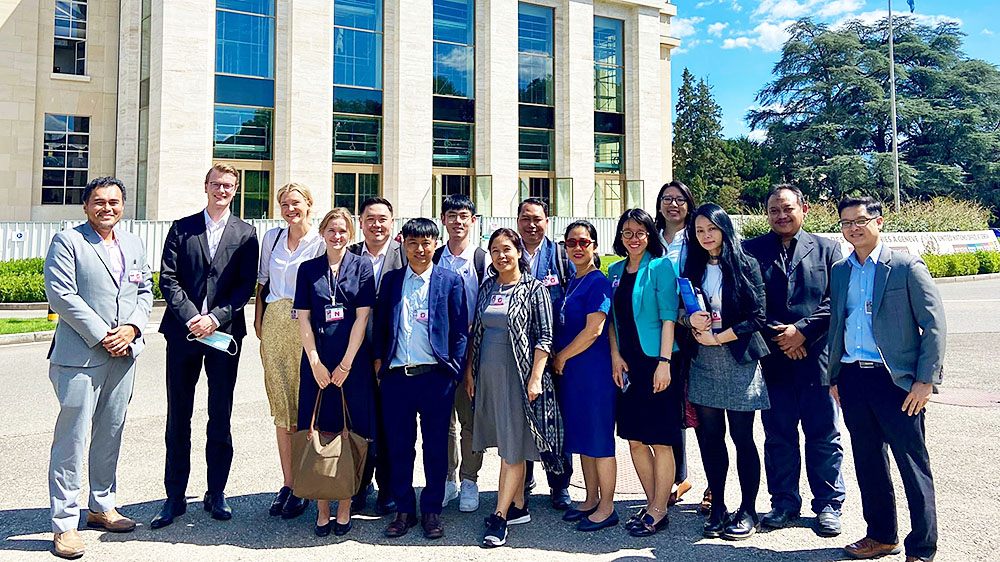The course itself draws on the experience and expertise of professionals who have engaged with UN mechanisms throughout their careers. The professionals – ranging from ex-diplomats to UN Special Rapporteurs, offer their own perspectives on the functions of UN mechanisms in a discussion-based setting. Moreover, the course offers visits to observe some of the mechanisms – this workshop arranged visits to the 135th session of the Human Rights Committee and the 50th session of the Human Rights Council.
Varied programme
Each day tackled its own thematic issue, starting with a general overview of UN human rights mechanisms offered by senior training coordinator Kamelia Kemileva – supplemented by Dr. Sriprapha Petcharamesree through her lecture on “Perspectives from ASEAN,” focusing on the accomplishments and challenges faced by the region with regards to human rights. The second day of the course was devoted to the topic of the Universal Periodic Review (UPR). Former Special Rapporteur on Housing, Miloon Kothari, offered his insights on how to strengthen national human rights mechanisms and engaging civil society through the process of the UPR. Furthermore, the third day dealt with the Human Rights Council and its mechanisms, providing valuable perspectives by, among others, current Special Rapporteur on the rights to Freedom of Peaceful Assembly and of Association, Clément Voule. The fourth day aimed at providing the participants with in depth knowledge of the UN Treaty Bodies, with a discussion led by current Treaty Body Member of the CRC, Mikiko Otani. In addition, the Centre’s own Gentian Zyberi provided an informal Q&A session, giving the participants the opportunity to pose question related to the work and process of the Treaty Bodies.
The important role of academia and civil society
The final day of the course brought all the thematic issues together – with former Federal Human Rights Commissioner of Australia, Prof. Brian Burdekin presenting on the importance of National Human Rights Institutions with regards to fulfilling human rights on a national level. Finally, the course was concluded by the certificate ceremony, awarding the participants for their active engagement and contribution to the training workshop. The ceremony itself was held by Kamelia Kemileva together with Senior Policy Adviser and former member of the UN Committee on Economic, Social and Cultural Rights, Virginia Brás Gomes.
The variety of perspectives offered by both participants and practitioners made for a productive workshop – with a consensus regarding the important role of academia and civil society in the process of holding States accountable for protecting, respecting and fulfilling human rights.
